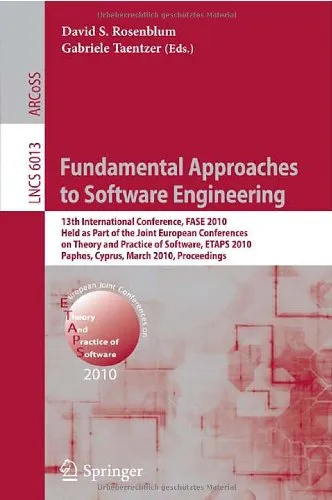Support Refhub: Together for Knowledge and Culture
Dear friends,
As you know, Refhub.ir has always been a valuable resource for accessing free and legal books, striving to make knowledge and culture available to everyone. However, due to the current situation and the ongoing war between Iran and Israel, we are facing significant challenges in maintaining our infrastructure and services.
Unfortunately, with the onset of this conflict, our revenue streams have been severely impacted, and we can no longer cover the costs of servers, developers, and storage space. We need your support to continue our activities and develop a free and efficient AI-powered e-reader for you.
To overcome this crisis, we need to raise approximately $5,000. Every user can help us with a minimum of just $1. If we are unable to gather this amount within the next two months, we will be forced to shut down our servers permanently.
Your contributions can make a significant difference in helping us get through this difficult time and continue to serve you. Your support means the world to us, and every donation, big or small, can have a significant impact on our ability to continue our mission.
You can help us through the cryptocurrency payment gateway available on our website. Every step you take is a step towards expanding knowledge and culture.
Thank you so much for your support,
The Refhub Team
Donate NowFundamental Approaches to Software Engineering: 13th International Conference, FASE 2010, Held as Part of the Joint European Conferences on Theory and Practice of Software, ETAPS 2010, Paphos, Cyprus, March 20-28, 2010. Proceedings
4.5
بر اساس نظر کاربران

شما میتونید سوالاتتون در باره کتاب رو از هوش مصنوعیش بعد از ورود بپرسید
هر دانلود یا پرسش از هوش مصنوعی 2 امتیاز لازم دارد، برای بدست آوردن امتیاز رایگان، به صفحه ی راهنمای امتیازات سر بزنید و یک سری کار ارزشمند انجام بدینمقدمهای بر کتاب
کتاب Fundamental Approaches to Software Engineering که مجموعه مقالات ارائه شده در کنفرانس سیزدهم FASE 2010 است، بخشی از مجموعه کنفرانسهای ETAPS محسوب میشود. این کنفرانس معتبر که در سال 2010 در شهر پافوس، قبرس برگزار شد، بستری علمی برای به اشتراکگذاری ایدههای نوآورانه در زمینه Software Engineering فراهم نمود. این جلد شامل مقالاتی است که به جنبههای اساسی، نظری و عملی طراحی، تحلیل و توسعه نرمافزار میپردازند. از روشهای formal برای طراحی سیستمهای نرمافزاری گرفته تا پیشرفتهای اخیر در model-based development، این مجموعه یک نمای گسترده از تحقیقات پیشرو را در این حوزه ارائه میکند.
خلاصهای از کتاب
این کتاب مجموعهای از 21 مقاله تحقیقی است که طی رقابتی جدی انتخاب و ارائه شدهاند. موضوعات مطرحشده در این مجموعه در ارتباط با مباحثی همچون software verification، model transformation، و dynamic analysis است. یکی از اهداف کلیدی این مجموعه، کمک به گسترش مرزهای دانش در زمینه software engineering با استفاده از متدهای رسمی و ابزارهای جدید است. سردبیران کتاب، David S. Rosenblum و Gabriele Taentzer، تلاش کردند تا بهترین تحقیقات ارائهشده در کنفرانس را در این مجموعه گردآوری کنند.
ساختار مقالات ارائه شده در این کتاب به گونهای است که هم محققان و هم متخصصان صنعت بتوانند از آن بهرهمند شوند. با توجه به بحثهای ارائه شده، خوانندگان با ایدهها و راهحلهای جدیدی برای چالشهای موجود در توسعه و نگهداری نرمافزارها آشنا میشوند.
نکات کلیدی کتاب
- بررسی روشهای formal در مهندسی نرمافزار و کاربرد آنها در حل مسائل واقعی.
- توسعه و بهبود ابزارهای پیشرفته در زمینه software verification و testing.
- نقش model-driven engineering در طراحی سیستمهای پیچیده و مقیاسپذیر.
- ارزیابی روشهای نوین در dynamic analysis برای افزایش کیفیت و قابلیت اطمینان نرمافزار.
- تأکید بر ارتباط بین تحقیقات نظری و برنامههای عملی در صنعت.
جملات برجسته از کتاب
"The integration of formal methods into software engineering practice is not just a necessity, but an inevitability as systems grow in complexity."
"Model transformation is the backbone of modern software engineering; understanding its theory is key to building future-proof systems."
چرا این کتاب مهم است؟
کتاب FASE 2010 نهتنها برای محققان دانشگاهی دارای ارزش است، بلکه برای متخصصان صنعت که به دنبال استفاده از ایدههای جدید در پروژههای واقعی هستند نیز بسیار مفید است. این کتاب پلی است میان تحقیقات بنیادی و کاربردهای عملی، و نشان میدهد که چگونه متدهای formal و ابزارهای مبتنی بر مدل میتوانند به بهبود کیفیت نرمافزار کمک کنند. علاوه بر این، تنوع موضوعات مطرحشده در این مجموعه نهتنها انعکاسی از وضعیت کنونی تحقیقات در حوزه software engineering است، بلکه مرجعی ارزشمند برای افرادی است که قصد دارند در این زمینه تحقیق و مطالعه کنند.
در نهایت، این کتاب نقشی تاثیرگذار در باز کردن افقهای تازه در دنیای پیچیده مهندسی نرمافزار دارد و خواندن آن برای افرادی که در جستجوی همراهی با پیشرفتهای اخیر هستند ضروری به نظر میرسد.
Introduction
The book "Fundamental Approaches to Software Engineering: 13th International Conference, FASE 2010" serves as a foundational text for understanding the latest advances in software engineering research and their application in real-world scenarios. Compiled as part of the proceedings of the 13th International Conference on Fundamental Approaches to Software Engineering (FASE), held during the Joint European Conferences on Theory and Practice of Software (ETAPS) in Paphos, Cyprus, March 2010, this volume brings together pioneering contributions from thought leaders in academia and industry.
The field of software engineering has always been dynamic and continuously evolving. This book captures the essence of the most pressing challenges, innovative methodologies, and cutting-edge tools that were at the forefront of research in 2010. By analyzing topics ranging from model-driven development and software verification to the latest advancements in testing methods and performance optimization, the book bridges the gap between theoretical approaches and practical implementations.
Through its detailed coverage of concepts and frameworks, the book offers an invaluable resource for researchers, practitioners, and students who are keen to stay ahead in a field that is crucial for today’s technology-driven society.
Detailed Summary of the Book
The work presented in the book spans a wide array of topics in software engineering, ensuring comprehensive and contextual understanding:
- Model-Driven Development (MDD): The book delves into how MDD approaches have transformed the engineering lifecycle by elevating abstraction levels while enhancing productivity and reducing errors.
- Software Verification and Validation: Encompassing state-of-the-art techniques to ensure the correctness and reliability of software systems, this section includes work on automated verification methods and model-checking tools.
- Testing Techniques and Optimization: Methods for optimizing software testing processes, particularly automated and regression testing, are addressed with innovative frameworks and algorithms.
- Performance and Scalability: Several contributions focus on ensuring that systems operate efficiently under diverse conditions, including adaptive designs suited for large-scale environments.
- Integration and Collaboration: Papers in this section explore collaborative methodologies and integrated tools that foster seamless cooperation between teams while ensuring optimal workflows.
Each chapter is meticulously written by experts in the field, contributing original research, detailed analysis, and case studies that bring the outcomes to life.
Key Takeaways
This book is instrumental for readers who desire to stay informed about the latest software engineering principles and practices. The key takeaways include:
- Gaining an in-depth understanding of the role of model-driven approaches in software engineering processes.
- Learning how automated testing can improve accuracy and reduce software development cycles.
- Exploring frameworks that enhance reliability and performance in software systems under varied conditions.
- Understanding theoretical advancements and their direct application to solving practical challenges.
- Engaging with collaboration tools and methodologies to improve team-oriented software development.
Famous Quotes from the Book
“Software engineering is as much art as it is science; its true power lies in bridging complexity with simplicity for human understanding.”
“To verify is to trust. Software verification isn't just about finding faults but instilling confidence in a system’s behavior.”
Why This Book Matters
As the software engineering domain continues to grow in complexity, staying updated with state-of-the-art methods, models, and tools is a necessity for researchers and professionals alike. This book matters because:
- It provides a comprehensive snapshot of the most significant research challenges in software engineering at the turn of the decade.
- The contributions have practical implications, empowering professionals with actionable insights for their projects.
- For academics, it offers a curated set of problems and solutions that can inspire new research directions.
- It exemplifies the collaboration between theorists and practitioners, which is central to innovation in software engineering.
Ultimately, the book symbolizes the enduring commitment of the software engineering community to not only solve current challenges but also anticipate and prepare for future ones.
دانلود رایگان مستقیم
برای دانلود رایگان این کتاب و هزاران کتاب دیگه همین حالا عضو بشین
برای خواندن این کتاب باید نرم افزار PDF Reader را دانلود کنید Foxit Reader


